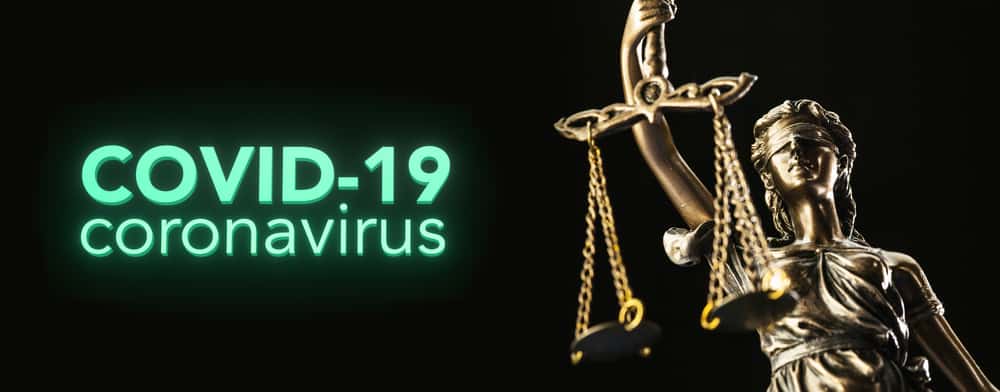The recently-passed CARES Act may be of help to you financially in the short term. When this crisis passes and you assess your finances and options for resolving any financial difficulty you may still be having, a strategic bankruptcy filing may help you as well.
The CARES Act
On Friday, March 27, 2020, the Coronavirus, Aid, Relief and Economic Security Act (the “CARES Act”) was passed. The CARES Act devotes $2.2 trillion to relief for American businesses and workers.
If you are a sole proprietorship or independent contractor and are struggling to stay in operation, it is likely you are eligible for one of the new SBA loan programs or grants.
If you are out of work due to the coronavirus, you may be eligible for unemployment insurance benefits under the federal expansion of eligibility and terms of state unemployment programs.
These two options may help you survive for the immediate future. When this crisis passes you can assess your situation and determine whether it is necessary to file a bankruptcy petition and get a fresh start.
Three SBA Loan and Grant Programs under the CARES Act
Emergency Economic Injury Disaster Loans (EEIDL) and $10K Grants
For sole proprietors and independent contractors who are struggling due to the coronavirus pandemic, the CARES Act established a direct loan product called EEIDL that is available to eligible businesses in designated disaster areas, which is now all 50 states. The COVID-19 streamlined application can be found and completed on the Small Business Administration (SBA) website.
For the remainder of 2020, approved applicants can receive an advance grant of up to $10,000, even if his or her application for an EEIDL is ultimately denied.
Sole proprietorships, self-employed individuals, independent contractors, and businesses having 500 employees or less are eligible for EEIDL funds.
Forgivable Small Business Loans Through the PPP
The CARES Act created the Paycheck Protection Program (PPP). PPP is also administered through the SBA, which modified existing loan programs to relax the usually-strict criteria for eligibility.
Eligibility for a PPP Loan
Your business is eligible for a PPP loan if:
- It has 500 or fewer employees, and its principal place of business is in the U.S.;
- It is a 501(c)(3) tax-exempt nonprofit organization;
- It is a 501(c)(19) tax-exempt veterans’ organization;
- It is a Tribal business under section 31(b)(2)(C) of the Small Business Act.
A PPP loan can be wholly forgiven if it is used for payroll and payroll costs, mortgage interest, rent, and utilities. However, at least 75% of the loan must be used for payroll and payroll costs.
Applying for a PPP Loan
Visit the SBA website to get the application and the list of lenders participating in PPP. To prove that you are eligible, you will need documentation such as payroll records or bank statements.
If you believe you are eligible for a PPP loan, apply as soon as you can, because PPP is available now through June 30, 2020, and funds are not unlimited.
The SBA Will Pay 6 Months of Other 7(a) Loans
For all other section 7(a) loans originating between March 27, 2020, and September 26, 2020, the SBA will pay principal as well as interest on your behalf for six months. A list of SBA-licensed lenders is on the SBA website. You can borrow up to $1 million under this program.
Expansion of Unemployment Benefits Under the CARES Act
Federal Pandemic Unemployment Compensation (“FPUC”) provides for up to 13 weeks of an additional $600 weekly benefit in addition to the amount a worker receives in their state unemployment program.
Pandemic Unemployment Emergency Compensation (“PUEC”) increases the maximum number of weeks a worker can receive unemployment benefits under their state program, up to 39 weeks.
Pandemic Unemployment Assistance (“PUA”) provision expands unemployment benefits to types of workers previously ineligible for unemployment benefits under state law. Those who are self-employed, independent contractors, have limited work history, or who have exhausted their regular or extended unemployment benefits, are now eligible for benefits if they:
- Have contracted COVID-19 or have COVID-19 symptoms;
- Have a member of their household with COVID-19;
- Are caring for someone with COVID-19;
- Are caring for a child or children home from school during mandatory closures;
- Are unable to start work or travel to work, or the workplace closed due to COVID-19;
- Became the primary breadwinner when the primary breadwinner died of the coronavirus;
- Had to quit their job due to COVID-19.
Visit your state’s unemployment insurance website for more information about how to file for benefits.
Wait to Consider Bankruptcy
We can not know how the economic landscape will look when the COVID-19 crisis passes. It may very well be that the CARES Act and perhaps subsequent federal legislation will supplement business operations and individual households enough to weather the crisis unscathed. More likely, many businesses will be forced to close, jobs will be permanently lost, and the economy will be slow to recover.
It is likely that bankruptcy filings will rise sharply when the crisis is over, due to mass unemployment or under-employment, mortgage or rent arrears, unreimbursed or uninsured medical expenses due to contracting COVID-19, and high credit card balances caused by reliance on credit cards because of a reduction of income.
When that time comes, you must assess your financial situation with the help of your bankruptcy attorney and determine whether filing a Chapter 7 or Chapter 13 bankruptcy case will help you get a fresh start following the pandemic. It is premature for most to consider filing bankruptcy now because you do not know the extent of your financial hardship yet, and you may incur additional debt and expenses in the coming weeks and months. Unless you are being sued or foreclosed upon, for now, take advantage of the many subsidies that are now offered, stay at home, stay safe, and weather the storm.
About the Author
Veronica Baxter is a legal assistant and blogger living and working in the great city of Philadelphia. She frequently works with David Offen, Esq., a busy Philadelphia bankruptcy lawyer.



